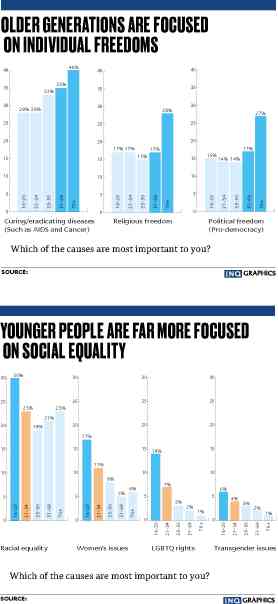Kids today are more “brand-conscious”—but not in the usual sense of the term.
Rather, they look to brands not as just flashy labels, but influencers of positive change in society, according to the recent study “The Truth about Youth” conducted by McCann Truth Central, the global think tank of McCann Worldgroup.
Focusing on three key central themes concerning the youth—Finding Yourself, Finding Your People, Finding Your Place in the World—the study found that many traits attributed to young people haven’t really changed: they are in that stage of self-discovery, but fundamentally still want to have someone to love, a good job, and a great circle of friends; friends remain the “center of their universe,” and they still want to be perceived by others as cool without looking like they’re trying to be; and young people still want to affect change.
These findings, which were compiled from over 30,000 interviews in over 20 countries, were revealed recently by McCann Worldgroup Philippines’ chief strategy officer Gino Borromeo and brand planner Vicky Malong, as well as McCann senior vice president and Truth Central director Nadia Tuma-Weldon.
The presentation was punctuated by performances of local “youth influencers” such as rapper Curtismith, singer Reese Lansangan and poet Slac Cayamanda.
So what has changed?
For one, that period of self-exploration—or trying to determine what one truly wants—has been extended, so to speak, by today’s youth.
The study found that many more opt to live with their parents even after they turn 30.
“To ‘adult’ is now a verb, instead of just being a noun,” said Borromeo, “Adulthood used to be a thing that happened to you. Now it’s a choice you make on a daily basis.”
Instead of focusing on milestones such as buying a new car or one’s own house, millennials put more emphasis on “moments” in their day-to-day existence: planning one’s own vacation, cooking for one’s self, or treating the family to dinner using one’s own money.
When it comes to millennials’ social circles, the study found an interesting phenomenon: youth today don’t just have friends; they have an audience, because most young people today are the most digitally connected.
In the Philippines, 61 percent of respondents said they wanted to portray themselves in best possible way on their social media accounts, underscoring the fact that they are concerned about how they are perceived by their audience.
However, the study also found that the same number said they would be open to posting their raw, unedited content, highlighting the significance of “real-time” and truthful posts to millennials.
Which brings us to the most significant finding of the study for brands and businesses: today’s youth want to affect change—and they want brands to become their partner in doing so.
In fact, 92 percent of Filipino teens believe that global brands are powerful enough to make the world a better place.
Ultimately, the study concluded that three things about the millennials should be taken into consideration by brands for their campaigns: that they want it accessible, but on their own terms; creative; and something that espouses the truth.
“It’s really about being sincere and true to your brand promise,” said Borromeo, “If you aren’t, I think today’s youth can easily spot that.”
